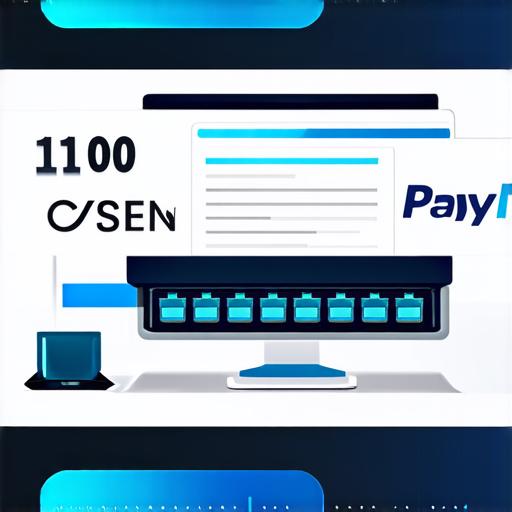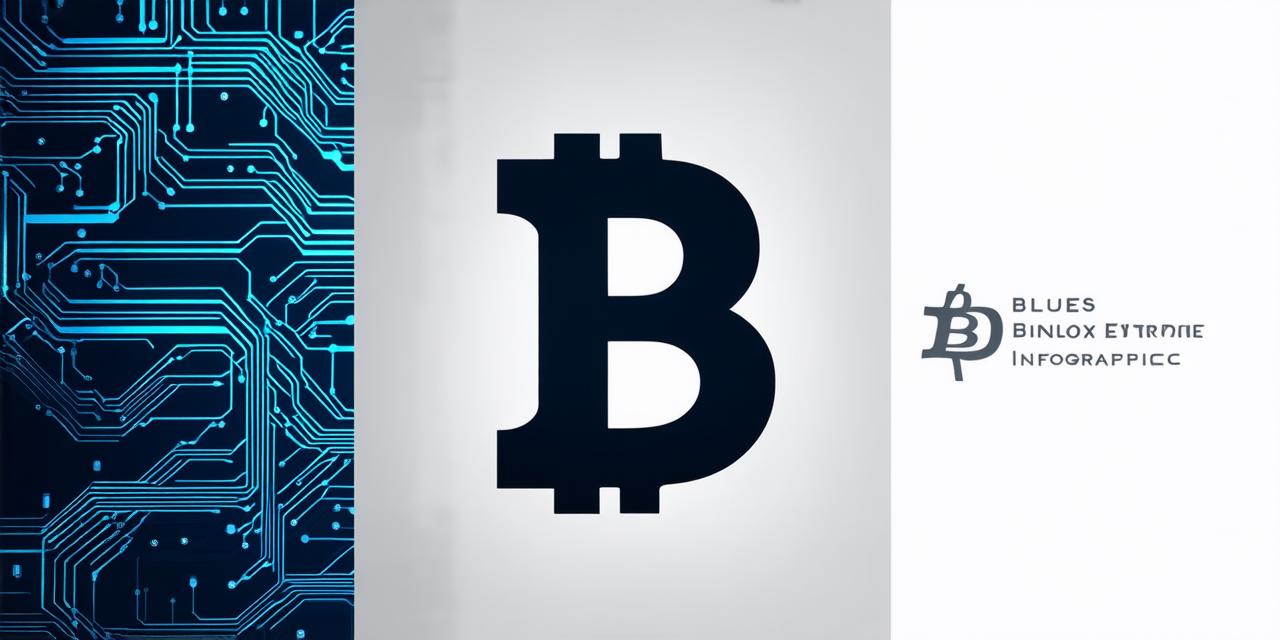PayPal is a leading payment platform that enables millions of users to send and receive money online. However, the company’s reliance on traditional banking systems and payment processors has led to numerous challenges, including high transaction fees, long settlement times, and limited accessibility in some regions. In recent years, blockchain technology has emerged as a promising solution to these problems, offering faster, cheaper, and more secure transactions. In this article, we will explore why PayPal should consider using blockchain and how it can benefit from this innovative technology.
Introduction: The Need for Blockchain in Payment Processing
The traditional payment system used by PayPal relies on intermediaries such as banks and payment processors to facilitate transactions. These intermediaries charge high transaction fees, which can be a significant barrier for individuals and businesses that need to send or receive large amounts of money. Additionally, the settlement times for these transactions can take several days, which can cause cash flow problems and delays in business operations.
Blockchain technology offers a solution to these challenges by eliminating intermediaries and enabling direct peer-to-peer transactions. By using a decentralized network, blockchain can offer faster, cheaper, and more secure transactions than traditional payment systems. Moreover, blockchain’s immutable ledger system can provide greater transparency and accountability in financial transactions, which is particularly important for businesses that need to comply with regulatory requirements.
The Benefits of Blockchain for PayPal: A Comprehensive Analysis
1. Faster Transactions: One of the key benefits of blockchain technology is its ability to enable faster transactions. Traditional payment systems require intermediaries, which can slow down transaction times significantly. In contrast, blockchain-based payments can be processed instantly, without the need for intermediaries. This means that PayPal can offer its customers faster and more convenient payment options, which can increase customer satisfaction and loyalty.
2. Lower Transaction Fees: Another significant advantage of blockchain technology is its ability to reduce transaction fees. Traditional payment systems charge high transaction fees, which can be a significant barrier for individuals and businesses that need to send or receive large amounts of money. In contrast, blockchain-based payments use smart contracts, which automate the payment process and eliminate intermediaries. This means that PayPal can offer its customers lower transaction fees, which can increase customer satisfaction and loyalty.
3. Increased Security: Blockchain technology offers a high level of security for financial transactions. By using a decentralized network, blockchain can prevent hacking and fraud, which are significant concerns in the traditional payment system. Moreover, the immutable ledger system used by blockchain can provide greater transparency and accountability in financial transactions, which is particularly important for businesses that need to comply with regulatory requirements.
4. Improved Accessibility: Blockchain technology can improve accessibility to financial services, particularly in regions where traditional banking systems are limited or non-existent. By using a decentralized network, blockchain can enable peer-to-peer transactions, which means that individuals and businesses can send and receive money without the need for intermediaries. This means that PayPal can offer its customers greater accessibility to financial services, which can increase customer satisfaction and loyalty.
5. Increased Efficiency: Blockchain technology can increase efficiency in payment processing by eliminating intermediaries and automating the payment process. By using smart contracts, blockchain can streamline the payment process and reduce the time and costs associated with traditional payment systems. This means that PayPal can offer its customers faster and more efficient payment options, which can increase customer satisfaction and loyalty.
Case Studies: Real-Life Examples of Blockchain in Payment Processing
1. Bitcoin: The most well-known example of blockchain in payment processing is Bitcoin. Launched in 2009, Bitcoin is a decentralized digital currency that uses blockchain technology to enable peer-to-peer transactions. Today, Bitcoin is accepted by many online merchants and can be used as a payment method for a wide range of products and services.

2. Ripple: Another example of blockchain in payment processing is Ripple. Launched in 2012, Ripple is a decentralized payment protocol that enables fast and low-cost cross-border payments. Today, Ripple is used by many banks and financial institutions to facilitate cross-border payments and reduce the time and costs associated with traditional payment systems.
3. Ethereum: Ethereum is a decentralized platform that enables developers to build smart contracts and decentralized applications (dApps). One of the most popular use cases for Ethereum is in payment processing. Today, many dApps built on the Ethereum blockchain are used as payment platforms, enabling peer-to-peer transactions and reducing the time and costs associated with traditional payment systems.
The Challenges of Implementing Blockchain for PayPal: A Comprehensive Analysis
While blockchain technology offers many benefits for payment processing, there are also some challenges that PayPal will need to consider before implementing this technology. These challenges include:
- Regulatory Challenges: One of the significant challenges of implementing blockchain for PayPal is regulatory compliance. While blockchain technology offers greater transparency and accountability in financial transactions, it may not meet all regulatory requirements. PayPal will need to work closely with regulators to ensure that its use of blockchain technology complies with relevant laws and regulations.
- Technical Challenges: Another challenge of implementing blockchain for PayPal is technical complexity. While blockchain technology offers many benefits, it can also be complex to implement and maintain. PayPal will need to invest in the necessary infrastructure and expertise to support its use of blockchain technology effectively.
- User Adoption Challenges: Finally, one of the significant challenges of implementing blockchain for PayPal is user adoption. While blockchain technology offers many benefits, it may not be familiar or accessible to all users. PayPal will need to invest in marketing and education campaigns to ensure that its customers are aware of the benefits of blockchain technology and how to use it effectively.
Summary: Why PayPal Should Use Blockchain
In conclusion, PayPal should consider using blockchain technology to improve its payment processing capabilities. By eliminating intermediaries and enabling direct peer-to-peer transactions, blockchain technology can offer faster, cheaper, and more secure payments than traditional payment systems. Moreover, blockchain’s immutable ledger system can provide greater transparency and accountability in financial transactions, which is particularly important for businesses that need to comply with regulatory requirements. While there are challenges associated with implementing blockchain technology, these challenges can be overcome with the right investment and expertise. By embracing blockchain technology, PayPal can position itself as a leader in payment processing and improve customer satisfaction and loyalty.
